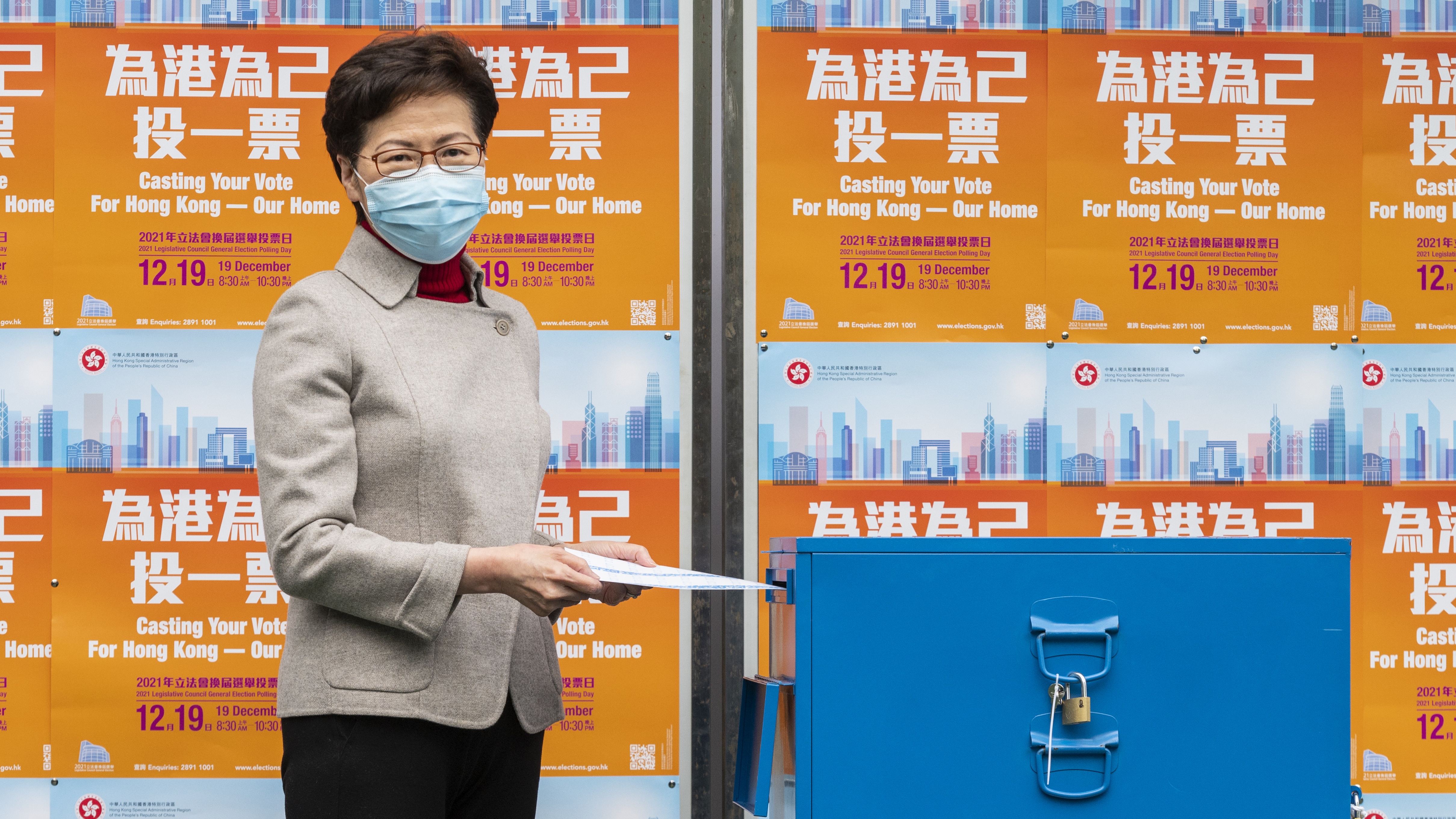Hong Kong voters shun first post-crackdown election
Pro-Beijing candidates sweep controversial Legislative Council vote

A free daily email with the biggest news stories of the day – and the best features from TheWeek.com
You are now subscribed
Your newsletter sign-up was successful
Pro-Beijing candidates won almost every seat in Hong Kong’s new legislature after loyalists swept the board in an election marked by a record low turnout.
Only 30% of Hong Kong’s 4.4 million eligible voters went to the polls in the first Legislative Council (LegCo) election since the introduction of last year’s national security law.
Experts said the turnout, which “came despite pro-Beijing candidates making urgent pleas for more people to vote”, signals “a general political apathy in the city, 18 months since authorities began a crackdown on political dissent”, The Guardian reported.
The Week
Escape your echo chamber. Get the facts behind the news, plus analysis from multiple perspectives.

Sign up for The Week's Free Newsletters
From our morning news briefing to a weekly Good News Newsletter, get the best of The Week delivered directly to your inbox.
From our morning news briefing to a weekly Good News Newsletter, get the best of The Week delivered directly to your inbox.
Analysis by local news outlet HK01 found that 82 of the 90 seats were won by members of the pro-establishment and pro-Beijing camp. Only one anti-establishment candidate won a seat, with the rest coming from unknown political backgrounds.
Tik Chi-Yuen, of the self-described centrist Third Side Party, was the only outsider candidate to win election. Tik, who resigned from the Democratic Party in 2015 to co-found his own party, has described himself as “moderate and rational” in interviews with Chinese state-media.
He has “argued that the city’s social workers should be excluded from mandatory oaths of allegiances to the government”, The Guardian said. The measure was “imposed” after the passing of the national security legislation in June 2020.
All candidates on the ballot paper were “vetted for their patriotism and political loyalty to China”, The Telegraph said.
A free daily email with the biggest news stories of the day – and the best features from TheWeek.com
Hong Kong’s Chief Executive Carrie Lam sought to “defend the new system” and “play down” the poor turnout.
“Hong Kong is now back on the right track of One Country, Two Systems”, she told reporters, using Beijing’s term for the city state’s partial autonomy. A “patriots-only” legislature would now govern the city state following the vote, she added.
“We cannot copy and paste the so-called democratic system or rules of the Western countries,” she continued. Asked why turnout was so low, she replied: “What is the reason? I can’t analyse. You may need to turn to other opinion leaders.”
One reason for the low number of Hongkongers who turned out to vote is the widespread belief that the national security law has “eroded” the city state’s “democratic processes and institutions”, the BBC said.
A number of pro-democracy figures have been detained or “are now shut out from LegCo”. Authorities have “denied the changes stifle democracy and say they are necessary to ensure patriotism to China”.
“But not many Hongkongers are convinced,” the broadcaster added, which explains why there has been “a marked drop in public enthusiasm for the election”.
Apathy towards the LegCo vote can also be explained by the number of “traditional opposition parties” that “sat out the race”, The Telegraph said. “Dozens of pro-democratic activists and former lawmakers” also remain in detention over their involvement in last year’s official primary election.
A recent survey of 1,004 Hong Kong residents by the Hong Kong Public Opinion Research Institute found that public satisfaction with the political situation in Hong Kong is currently at its lowest level for a decade.
The poll also found that the popularity rating of Chief Executive Lam is at 37.4, with 33% of respondents giving her zero marks.